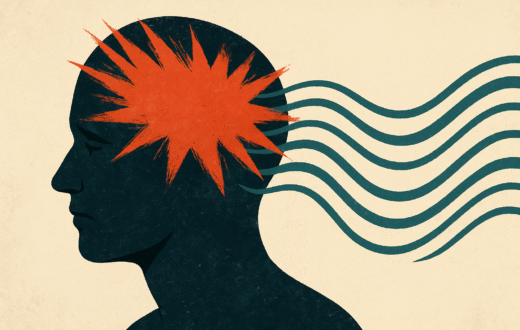Challenges of mental health services in health institutions

1. Introduction
This work aims to explore the challenges facing mental health services in health institutions, which include many structural, organizational, financial, legal, cultural and social aspects, as well as technical challenges and challenges in education, guidance and counseling. By analysing these challenges, it is possible to reach future directions and strategies for improving and developing mental health services.
Mental health is one of the essential aspects of holistic health, and plays a vital role in maintaining the well-being of the individual and society. Universal health-care goals cannot be achieved without adequate attention to mental health. Psychological issues and mental disorders affect a person’s overall condition and lead to a deterioration of social and occupational conditions, so improving mental health services is critical in health institutions.
2. Transformations in mental health
The fields of mental health are undergoing significant transformations as a result of the social and demographic changes that societies are experiencing. As the psychological stress due to social and economic problems increases, the demand for mental health services increases and this requires keeping pace with the transformations and providing appropriate and appropriate services for these changes.
Societies are experiencing demographic and social transformations that significantly affect mental health. The increase in the number of older persons, changes in family structures, migration and income disparities are some of the factors that affect the mental health of individuals. Therefore, these transformations require the improvement and development of mental health services to better meet the needs of society.
3. Structural and organizational challenges
The field of mental health services faces structural and organizational challenges, represented by the weak infrastructure of health institutions to provide mental services, and the failure of health policies to direct investment and resources to strengthen mental services. These challenges also include a lack of coordination between health departments and units within hospitals and mental health centres, leading to fragmentation of efforts and deterioration in the quality of services.
The mental health sector faces the challenge of a shortage of qualified and trained health personnel in various psychological specialties, such as psychiatrists, psychotherapists and psychiatric nurses. This challenge is due to a lack of mental health education and training programs, and a lack of funding and support to attract and strengthen qualified mental health staff. As a result of this challenge, the provision of psychiatric services is becoming limited and insufficient to meet the growing needs of patients with mental disorders.
4. Financial and economic challenges
Mental health services face multiple financial and economic challenges resulting from the high costs of providing psychological services and treatments. Investments in infrastructure and ongoing training of mental health personnel require significant financial resources. In addition, government financial support for the provision of psychiatric care may be limited and insufficient to meet growing needs.
Health spending trends in mental health face particular challenges resulting from financial pressures and limited budgets. The challenges are to use financial resources effectively and ensure that spending is directed to health priorities, including improving services and accessing psychiatric care. There must be clear strategies for allocating and managing financial resources effectively according to the needs of the mentally ill.
5. Technical challenges
Mental health services face increasing technical challenges in the modern era, as modern technologies must be kept up with and applied in the provision of psychological care. Among the technical challenges is the provision of remote services via social media and smart applications, which require the provision of advanced communications and networking infrastructure. The security and confidentiality of psychological data should also be considered when using technology and digital transformation in psychological services.
Technology brings great opportunities in the provision of mental health services, including the use of artificial intelligence in the diagnosis and treatment of mental disorders, and the use of smart applications and programs in the follow-up and support of patients. Technology can also be used to provide mental health information and education to the community. However, technology-related challenges such as complete reliance on devices, interruptions in digital services, and privacy and security issues must be considered.
6. Cultural and social challenges
Cultural and social challenges are one of the most prominent factors affecting mental health services in health institutions, as these challenges include addressing differences in cultures, values and beliefs between service providers and patients. It also includes the impact of social factors such as poverty, unemployment and discrimination on the effective and realistic delivery of mental health services to patients. Recognizing these challenges and working to address them can enhance the quality of mental health care and contribute to the provision of equal and equitable services for all.
Discrimination and prejudice are among the biggest challenges facing mental health in health institutions, where discrimination and prejudice can lead to unequal and unfair services for patients. Challenges include discrimination based on age, sex, race, social status or mental health status itself. Addressing these challenges requires effective action to reduce discrimination and bias in service delivery, including sensitizing and training providers and developing policies that promote equality and the rights of mentally ill patients.
7. Legal and ethical challenges
Mental health services face legal and ethical challenges in protecting the privacy of psychiatric patients. Health institutions must abide by laws on maintaining the confidentiality of patient information and protecting it from unauthorized access. Institutions must also ensure that mental health care is provided on ethical grounds, while respecting the dignity and rights of patients. This requires adherence to standards of professional ethical conduct and specific legal guidelines for this purpose.
Protecting the privacy of psychiatric patients is essential in the provision of mental health services. Health institutions must provide a safe environment for patients that respects their privacy, and ensure that their personal information is not disclosed without their consent. Medical teams and mental health professionals should follow strict procedures to protect the confidentiality of patient information and avoid any legal or ethical violations that may negatively affect the reputation of the institution and the quality of service provided.
8. Challenges in education and awareness
Mental health services face challenges in education and awareness as many suffer from a lack of knowledge and awareness about mental health and its importance. Efforts in health education and awareness of mental health problems and how to deal with them must be improved. Furthermore, public dialogue on mental health issues in the community should be promoted and encouraged and the fear and discrimination surrounding these issues removed.
One of the challenges facing mental health services is the urgent need to change mainstream psychological paradigms. This change requires recognition that mainstream models may be volatile and need to be re-evaluated and improved. Alternative models should be sought that take into account individual and cultural differences and offer a better solution for the delivery of psychological care, including a transition from traditional models to modern and innovative approaches.
9. Challenges in Mentoring
In the field of guidance and counseling, mental health institutions face many challenges in providing the necessary psychological support to patients and their families. Effective guidance and counseling requires a qualified and specialized team in dealing with various psychological conditions, in addition to providing integrated guidance programs aimed at improving the patient’s psychological quality of life. Furthermore, effective evaluation and follow-up mechanisms must be ensured to evaluate results and ensure the effectiveness of the psychological support provided, taking into account emergencies and providing the necessary psychological support in such cases.
Providing psychological support to patients and their families is a major challenge that requires special attention from mental health institutions. Comprehensive psychological support programs should be provided, including individual and group sessions, as well as guidance and counseling through various appropriate means and techniques. These programs must be available continuously and sustainably, under the supervision of specialized and qualified cadres. Mental health institutions should also take an integrated approach that includes prevention, early diagnosis and psychotherapy to ensure comprehensive psychological support for patients and their families.
10. Challenges in Evaluation and Evaluation
Mental health services in health institutions are experiencing significant challenges in terms of assessment and evaluation, with many patients having difficulty estimating the quality of the services they receive. Ensuring the quality of mental health services requires the establishment of effective mechanisms for monitoring and evaluating the services provided, and the development of uniform evaluation criteria. Continuous training should also be provided to mental health personnel on how to accurately and objectively evaluate services. Clinical evidence and national and international standards must be used in assessment and assessment processes to ensure that patients have access to quality mental health care.
Ensuring the quality of mental health services is a major challenge in health institutions, as this requires the adoption of accurate standards and mechanisms to ensure the provision of high-quality mental care. There should be specific procedures for monitoring and evaluating the services provided, including systematically collecting and analyzing patient and service provider feedback. In addition, there should be strategies to develop mental health services based on the results of assessments, contributing to improving the care experience and health outcomes for patients.
11. Challenges in training and professional development
The field of mental health faces great challenges in terms of training and professional development, as employees in mental health institutions need continuous training to keep pace with scientific and technical developments. Provide specialized training programs that cover various aspects of mental health and enhance employees’ skills in dealing with daily work challenges. Continuous professional development can contribute to improving the quality of services provided and increasing the effectiveness of work and the efficiency of the mental health team.
The development of training and continuing education programs is vital to improving the level of mental health services. Programs should be designed comprehensively and include updates in new treatments and technologies as well as changing patient needs. These programs can be enhanced by relying on digital learning to provide online courses which contributes to increasing the accessibility of employees worldwide and improving the quality of education provided.
12. Challenges in R&D
Mental health faces many challenges in research and development, as it requires a deep understanding of the conditions and problems faced by psychiatric patients. One of the main challenges is the lack of interest and investment in the field of psychological research, which hinders development and innovation in the provision of mental health services. In addition, few health institutions are interested in supporting psychological research and technical development, which contributes to disrupting growth and progress in this field.
The main challenge facing mental health is the search for innovation and the use of new technologies in the delivery of psychological services. Innovation and new technologies can help provide effective treatments and improve psychological care. One of the promising future technologies in mental health is the use of artificial intelligence in assessing cases and directing treatment, as well as employing virtual technology in the treatment of mental disorders and providing psychological support remotely.
13. Challenges in cooperation and partnerships
Mental health services are experiencing significant challenges in public-private collaboration and partnerships, and they need to strengthen this collaboration in order to deliver comprehensive and effective services. The current challenge requires the exchange of knowledge and experiences between the two sectors, and joint work on the development of health and mental health policies and programs. Collaboration between the two sectors improves access to and more efficient provision of services, and can offer new opportunities for financing and investment in mental health.
Strengthening public-private collaboration in mental health services is vital to improving patient care. By building strong partnerships between the two sectors, the quality of services can be enhanced and coverage expanded, benefiting both the individual and society. This requires the exchange of resources and technology and the development of joint programs that reflect the needs and aspirations of patients and their rehabilitation. In addition, cooperation between the two sectors can contribute to improving the effectiveness and administrative and financial efficiency of mental health services.
14. Sustainability Challenges and Future Directions
The mental healthcare system faces significant sustainability challenges, as these services require long-term continuity in their delivery to patients. In light of the financial pressures and structural challenges faced by health institutions, the focus must be on improving the sustainability of mental health services. This requires appropriate financial support to mental health institutions, as well as the development of strategies to increase efficiency and low cost, enhancing their ability to meet mental health needs. By addressing financial challenges and researching policy and programme updates, the quality of mental health services can be improved and their long-term sustainability improved.
Improving the sustainability of mental health services requires developing a holistic approach to providing continuous and sustainable mental care. This can be achieved by further developing and improving the psychiatric care infrastructure in health institutions and increasing the availability of mental health resources and personnel. Policies and procedures should also be developed to stimulate the financial sustainability of mental health services and raise awareness of the importance of supporting these services on a permanent basis. In addition, consideration should be given to developing ongoing training programs for mental health professionals and promoting research and innovation in this area to ensure the continuity of mental health services and achieve sustainability in the future.





